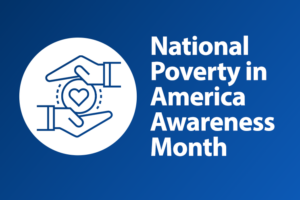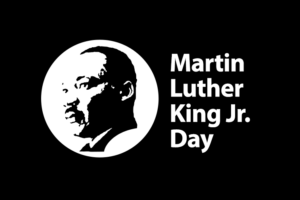Sarah Ford | February 26, 2015
With So Many Options Available, Why is Giving at the Workplace Important?
(This post is from the Charities@Work blog series)
By Gina Rude, Accenture
When I was growing up, my dad kept a pen and paper ledger of all of my “income” and spending. He was basically being my bank and teaching me how to track income vs. expenditures. He not only wanted me to know the value of the dollar, but wanted me to understand the trap of indebtedness. I am grateful for his teachings; I believe because of them, I have been successful in managing my finances through each stage of my adult life. As I reflect on my personal finances, I identify one component of our family budget not learned through my parents’ teaching: Charitable Giving. My parents were not ones to discuss how much they made, how they spent their money, or how they used their money to help others. It was taboo in our family to have such a discussion. Therefore, I never learned if or how much they gave or what organizations they supported. Likewise, I never knew if charitable giving was even important to them. Though I heard talks at church, without knowing how my parents gave and without being encouraged to do it with my own savings, I thought of donating as something that was simply nice to do or something that older people did when they earned a lot of money!
Fortunately, throughout my young adult years, I was able to gain experiences that reshaped my opinion on giving back monetarily. My giving has stemmed from a sense of gratitude, obligation, investment, and a desire to have a greater impact.
- The first experience came from my alma mater, Clemson University. One group that was quickly incorporated into anyone’s Clemson experience was a program called IPTAY, which stood for ‘I pay $10 a year’. IPTAY members spoke about and educated students on the importance of giving back in appreciation for our educational experience. We were encouraged to donate both during and after college. I remember wanting the IPTAY sticker and wanting to be able to claim IPTAY membership. Therefore, I made sure I gave my $40 over the four years I was there! As I left Clemson and headed to Atlanta, I remember thinking I would give all my money to IPTAY one day… when I made a lot of money! I was so connected right then with my college experience and I felt gratitude and obligation to show my support through a financial donation, no matter how small it was at that time.
- Similarly, a volunteer experience shaped my attitude toward financial giving. As I began my career in Atlanta, I searched for more meaning outside of my job. I began volunteering with youth and giving more and more of my time on nights and weekends to one particular organization. It eventually become part of me, and like college, I felt the urge to give back not only with my time, but also with my money. While I didn’t know how much to give or even how to go about giving, I gradually learned to incorporate giving to this organization into my monthly budget. Soon my financial commitment to this organization became something I planned for and felt good about doing; I knew giving was the right thing to do. I now felt a new connection and responsibility toward the organization. I felt invested.
- Lastly, after being with Accenture for a few years and knowing about the employee giving campaign, I had yet to pledge any money through it. A charity came to the office and shared information about all the work they do in the community and all the causes they represent. In addition someone spoke about using payroll giving as a payment option; I knew little about how this worked or how easy it was. It fascinated me that as little as $5.00 or $10.00 a paycheck (one or two cups of coffee a week) could really add up over the year. Even better, that same donation wouldn’t greatly impact my overall budget when taken out in small increments. The sheer ease of management and not having to think about the gift each month intrigued me as well. I weighed the difference between giving $5.00 to $10.00 a pay period against the year-long impact that small amount could have for the organization I would be supporting. I felt that the overall benefit for the charitable group far outweighed the small-scale sacrifice I would be making on a regular basis. Needless to say, I signed up and have been pledging via our employee giving campaign each year since. I continue because over time I have felt the need to be part of a greater impact, and I know that what might seem like a small amount for me can be much more to someone else.
Giving habits are shaped by those organizations and people with whom we are connected. Companies have the opportunity to teach, inspire, and build a culture of giving back through offering an employee giving program that complements their own corporate giving. It is important for a company (or family) to share what they are doing to give back and to encourage their employees (or children) to give back in their own individual way. Corporations that provide payroll giving have the opportunity to teach budgeting skills to someone who may be new to charitable giving. At the same time, payroll giving provides a low-maintenance way of giving throughout the year. Companies that cultivate a charitable environment, one where employee giving can be done with ease and benefits, may perhaps even increase employee engagement in greater giving. In the end, these same companies that not only encourage giving, but streamline the process of giving, may find that they retain their employees at a higher rate than other companies without a similar emphasis on charitable giving. It is difficult for many people to walk away from an organization that works hard to help others inside and outside the organization.
In my family, my children will know that we give back. They will also know how and to whom we show support. I will encourage them to give as they are able. At work, I expect giving to be part of our culture, and I insist on knowing how we give so that I can join in and be part of making a greater impact with others I work with each day.
Register Now! Join us In New York March 23-25, 2015 for the Charities@Work 13th Annual Best Practices Summit on Employee Engagement in Corporate Citizenship sponsored by Wells Fargo. Click here to register now!
Get Resources and Insights Straight To Your Inbox
Explore More Articles
Open Position: Customer Service Coordinator (Remote-Part Time)
Position Title: Customer Service Coordinator (Remote – Part Time) Department: Charitable Funds Management Solutions We are a non-profit charitable organization looking for skilled individuals who…
Read ArticleGet Resources and Insights Straight To Your Inbox
Receive our monthly/bi-monthly newsletter filled with information about causes, nonprofit impact, and topics important for corporate social responsibility and employee engagement professionals, including disaster response, workplace giving, matching gifts, employee assistance funds, volunteering, scholarship award program management, grantmaking, and other philanthropic initiatives.




